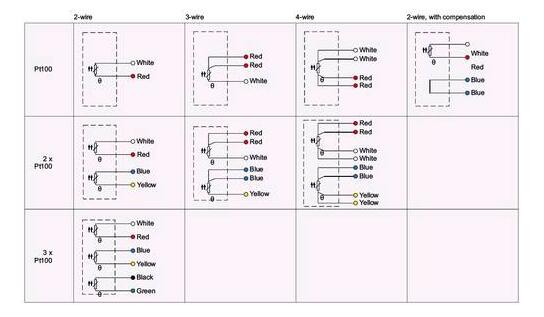How does a Pt100 sensor work?
by Miles Warren
August 12,2021

EPIC® SENSORS Pt100 temperature sensor
Based on resistance measurement principle
Material is platinum and resistance value is 100 ohm at temperature 0 °C
Platinum has a positive resistance temperature factor; resistance increases with rising temperature
Resistance variation is a function of temperature; 0,39 ohm/1 °C
Long term stability is the main difference compared to other temperature measuring methods; one year value is better than 0,2 ohm/0 °C.
Pt100 sensor structures
One sensor structure can include also several Pt100 resistances: 1, 2 or 3 × Pt-100 (most common is 1 × Pt-100).
For different measuring circuits the resistance element can be produced in different versions: 2-, 3- or 4-wire connection (most accurate is 4-wire).
Even as a standard version the industrial Pt100 sensor is vibration proof and additionally it can be produced as an extra vibration proof version for extreme circumstances.
Pt100 accuracy classes
Standard IEC 60751 defines Pt100 resistance accuracy classes and corresponding tolerances. Briefly, the tolerance classes for wire wound resistors used for EPIC® SENSORS are:
Class A
applies on temperature range -100 ... +450 °C
0 °C = ± 0,15 °C, 100 °C = ± 0,35 °C
EPIC® SENSORS standard, 4-wire connection recommended
Class B
applies on temperature range -196 ... +600 °C
0 °C = ± 0,3 °C, 100 °C = ± 0,8 °C
Class B 1/3 DIN
divided value, based on Class B, not applicable over the whole measuring range
0 °C = ± 0,3 / 3 °C
Class B 1/10 DIN
divided value, based on Class B, not applicable over the whole measuring range
0 °C = ± 0,3 / 10 °C
Pt100 wire colors
Colors of wires attached to Pt100 resistance are defined in standard EN 60751. Wire colors according to this standard for 2-, 3- and 4-wire connection are presented within each sensor type and additionally clicking the image below.
